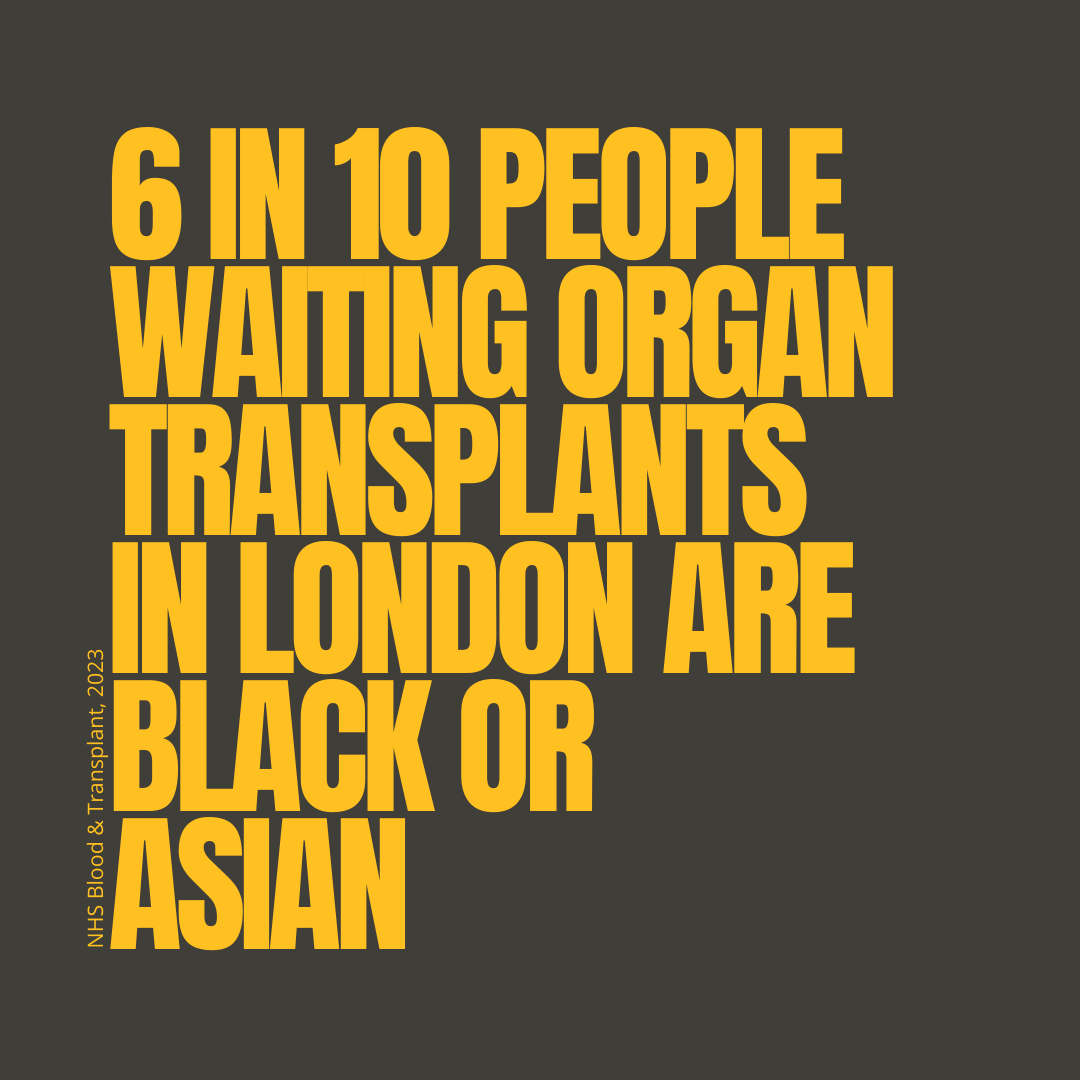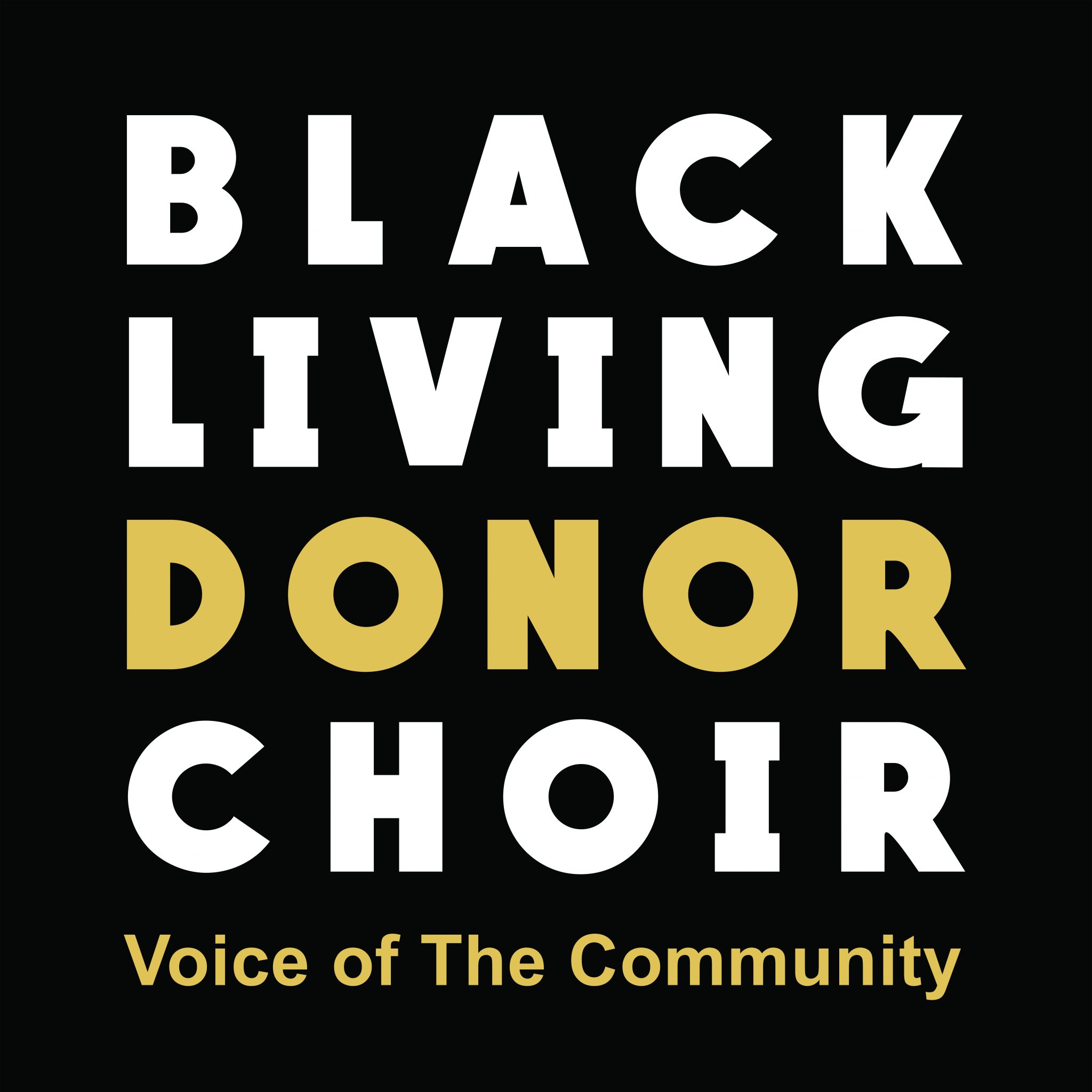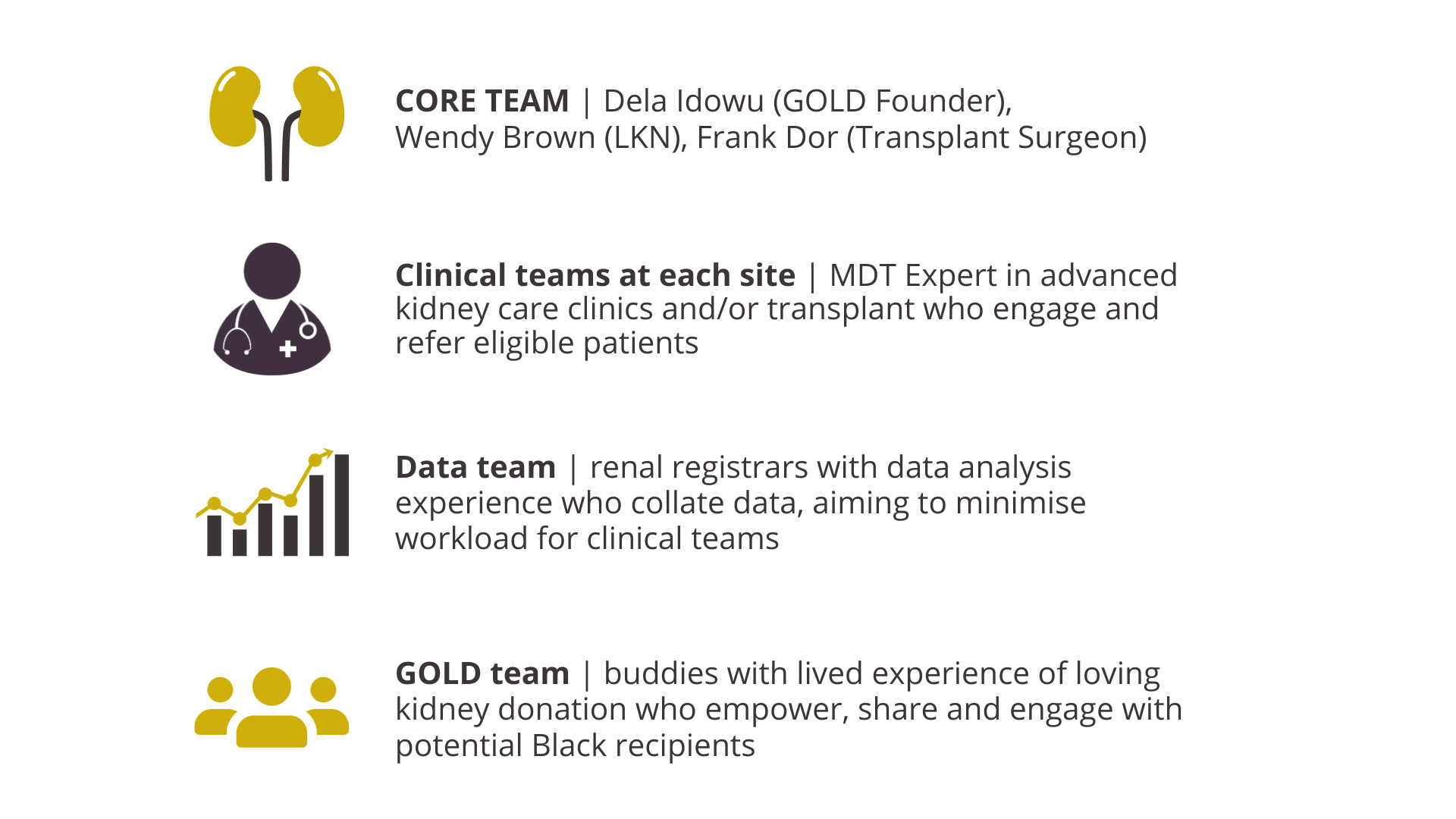Improving access to living kidney donation for Black kidney patients
Quality Improvement Toolkit
The Phone Buddy Scheme Toolkit provides advice to centres on how to get started with the QIP to improve access to living donation for African Caribbean renal patients.
The Gift of Living Donation toolkit was developed in collaboration with renal clinicians in London and the London Kidney Network (LKN) but can be used in centres outside London where there is a high population of Black renal patients.
Patient and public involvement work suggests that discussing living donor transplantation with a peer who understands the experiences as a kidney patient or living donor can help navigate the culturally specific difficulties of approaching the topic with family and friends.
The Clinical Referral Pathway
Clinicians from different clinics refer patients with their consent to the Peer Buddy scheme.
1. Initial assessment
- A member of the GOLD team contacts the patient within two days of referral
- They gather background information and work out an individual plan of action
- An assessment is made whether a peer buddy is needed at this stage
- The assessment usually takes 15-30 minutes
2. Matching process
We coordinate with medical professionals to start the referral process, ensuring all necessary evaluations and tests are completed.
3. Clinical follow-up
- Update referring clinician after initial assessment by email
- Include a plan of action
- Patient comments
4. Patient follow-up
Three weeks after initial assessment
- Find out where patient is on their action plan
- Establish if they have a potential donor
- Arrange a further follow-up in two weeks if necessary
Eligible population (N)
Black and mixed Black patients, <70 years old with an sGFR <25ml/min/1.72² and no obvious contraindications to transplantation
How does the GOLD QI project measure and generate improvement?
We look at the implementation and outcomes of the GOLD peer phone buddy scheme within participating renal centres.
The project enrols multiple renal centres with varying staff and service structures but collects the same simple data. This data is used to inform continued improvement at a site level by working with clinical teams and at a project level using QI tools.
- Number of referrals to GOLD buddy scheme
- Number of referrals pre-dialysis
- Number of referrals who go on to have a potential donor
This will show how successfully the scheme has been implemented
These data comes from the implemented pathway and a count of referrals from other sources.
Your content goes here. Edit or remove this text inline or in the module Content settings. You can also style every aspect of this content in the module Design settings and even apply custom CSS to this text in the module Advanced settings.
How do I start it in my centre?
To start a GOLD QI project in your centre, you need to:
- Identify a multidisciplinary clinical team based in transplant and/or advanced kidney care (two or more people)
- Identify someone to collect and report the data (we can help identify a trainee for this role)
- Complete centre-specific governance procedures such as registering the QI project and discussing with relevant departmental leads
How the GOLD QI team can help your Buddy Scheme
1
Getting started
We work with clinical teams to implement the scheme. Starting small, initially with a pathway (identified via process mapping) within your centre, before scaling up the project.
2
Data & Information
We’ll provide culturally tailored, patient literature and posters.
We work out how to operationalise data extraction with your nominated data lead for each site.
The data is recorded in a secured document stored in a shared NHS OneDrive account. A monthly report is shared with participating centres containing anonymised data.
3
Staying on track
Once you’ve launched your scheme, we advise clinical and data teams during monthly meetings, helping them to review progress and discuss challenges.
The GOLD team can join these meetings when invited and help to promote the project.
Community engagement, changing the narrative.

Latest data on living donor transplants for Black patients
Feature Short Description

Could you be a Phone Buddy?
Find out what you need to become a GOLD living donor phone buddy÷

Where to see the Black Living Donor Choir over Christmas
Feature Short Description
Testimonials
Customer Testimonial
Customer Testimonial
Customer Testimonial


